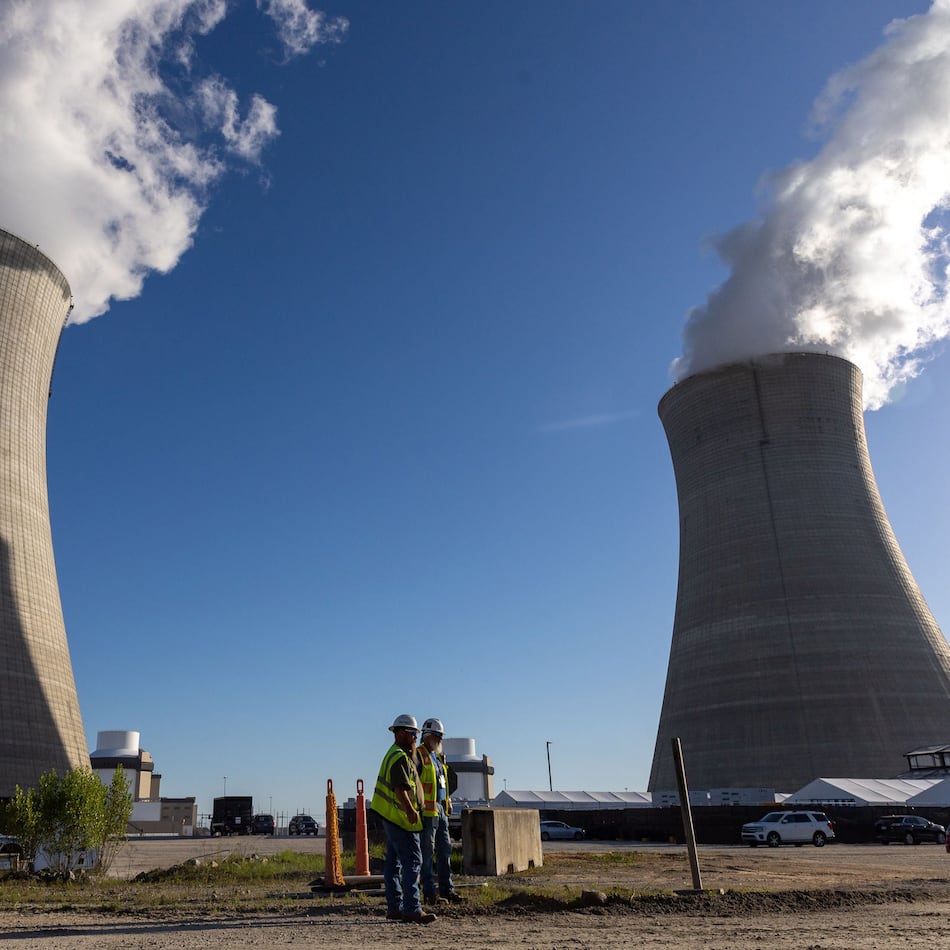ATLANTA (AP) — Georgia Power Co. announced on Monday that it has agreed to a plan with regulatory staff to hold base power rates steady through the end of 2028, although customer bills could still rise in 2026 or later because of the costs of rebuilding from Hurricane Helene and buying natural gas and coal.
The five elected members of the Public Service Commission are scheduled to vote on the plan by July 1, according to a stock market filing. The commissioners, all Republicans, could reject or alter the plan, but negotiated agreements with staff historically have been very influential with commissioners.
John Kraft, a spokesperson for Georgia Power, said holding rates steady is a benefit “of the extraordinary economic growth taking place in our state.”
“This stipulated agreement helps balance the affordability needs of our customers while ensuring Georgia Power remains equipped to continue its support of our state’s incredible growth – which is good for all of our stakeholders,” Kraft said in a statement.
An agreement would allow Commissioners Fitz Johnson and Tim Echols to seek reelection this year without the threat of a rate increase hanging over their campaigns. Echols faces Republican challenger Lee Muns in a June 17 primary, with Democrat Alicia Johnson awaiting the GOP nominee in November. Democrats Daniel Blackman, Peter Hubbard, Robert Jones and Keisha Sean Waites are vying in the primary to face Fitz Johnson in the general election.
Georgia Power is the state’s only privately owned electrical utility, serving 2.3 million customers statewide. Last year, Georgia Power collected $11.3 billion in revenue and contributed $2.5 billion in profit to its parent, Atlanta-based Southern Co.
The company predicts rapidly increasing demand from computer data centers. Georgia Power has said regular customers won’t pay for power plants and transmission lines needed to electrify data centers, a pledge now backed up by commission rules. The company has said other customers would see “downward pressure” on rates because of data centers.
Jennifer Whitfield, a senior attorney with the Southern Environmental Law Center, predicts customer bills will rise in 2026. That's because Monday's agreement calls for Georgia Power to file a separate plan next year to charge for $800 million in reconstruction costs after Helene.
Whitfield also said Georgia Power might seek to charge more to pay for natural gas and coal to generate electricity.
“For the last year and a half, we’ve been promised that data centers coming to Georgia were going to put a downward pressure on rates. And we imagined that downward pressure would apply to these increases for things like a billion-plus dollars of storm costs,” Whitfield said. “But now, the downward pressure has dissolved. There is no downward pressure.”
Customers have seen bills rise sharply in recent years because of higher natural gas costs, construction projects including two new nuclear reactors at Plant Vogtle near Augusta, and other factors. A typical Georgia Power residential customer now pays more than $175 a month, including taxes. Liz Coyle, the executive director of consumer group Georgia Watch, said political reality dictates a freeze.
“I think the reasons more than anything have to do with the company’s awareness that their customers and members of the legislature are alarmed about the potential for another rate increase while customers are still reeling,” Coyle said.
The deal comes even as commissioners are still considering Georgia Power’s three-year plan to generate enough electricity to meet the state's needs. Commissioners approved a mid-cycle rewrite of the current plan because of predictions for increased demand.
Typically, a rate plan is approved after that integrated resource plan, ensuring the utility can pay for improvements. But Georgia Power and regulators previously extended a rate plan from 2016 to 2019.
One thing the proposal would do is bolster the likelihood that Georgia Power will keep earning high profits. Under Georgia's regulatory system, the company earns a return on the money it invests. Georgia Power earns one of the highest rates of return in the country, set between 9.5% and 11.9%. Under the proposal, the utility could recoup up to $250 million in costs it would otherwise defer if its return falls below 10.5%. That makes it unlikely returns would fall below that level.
Keep Reading
The Latest
Featured



